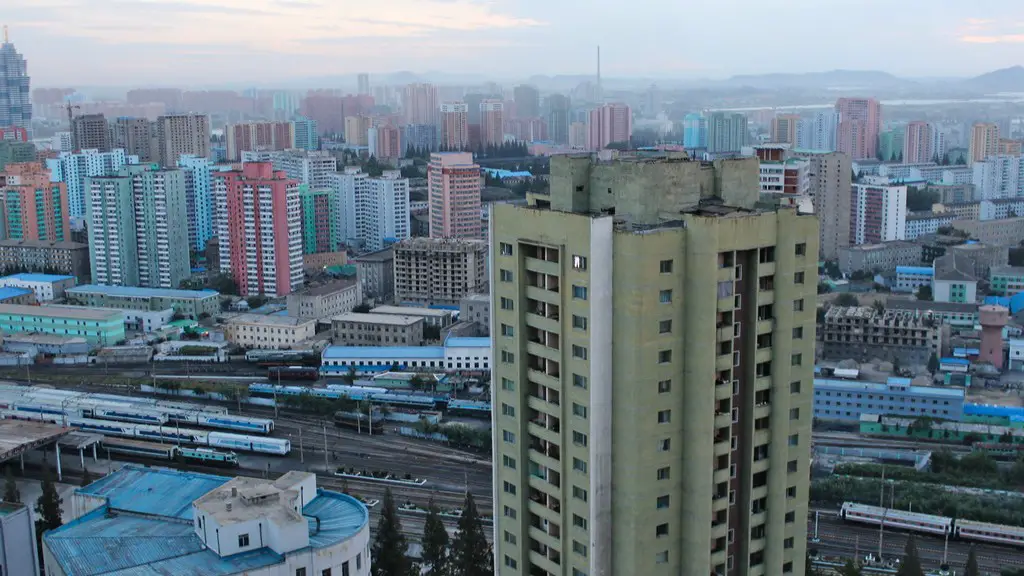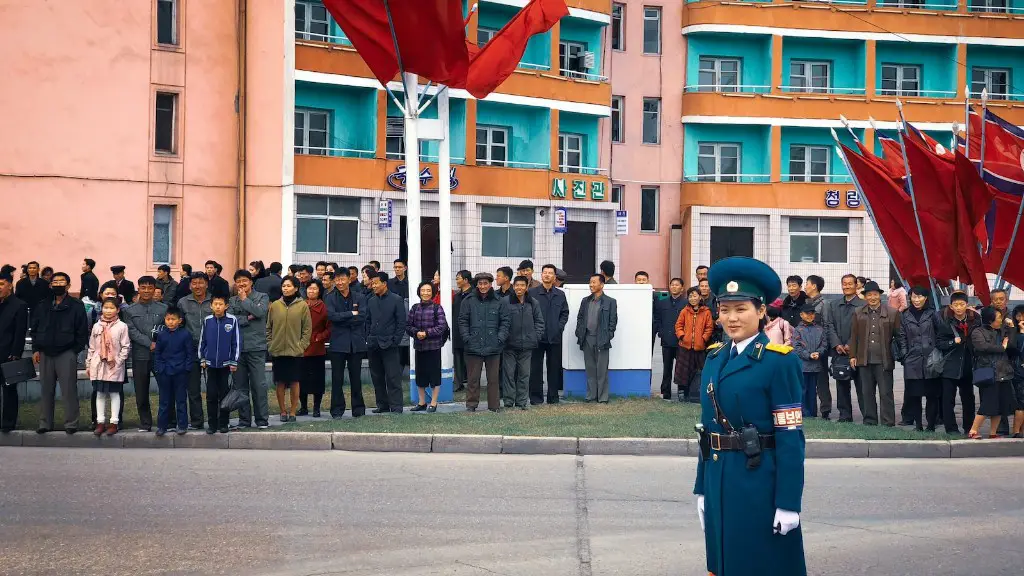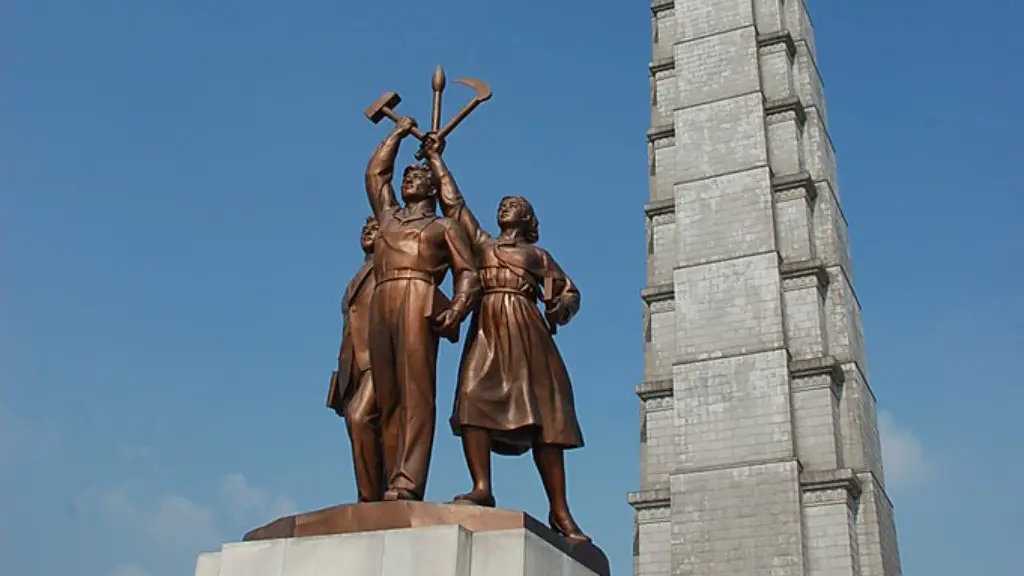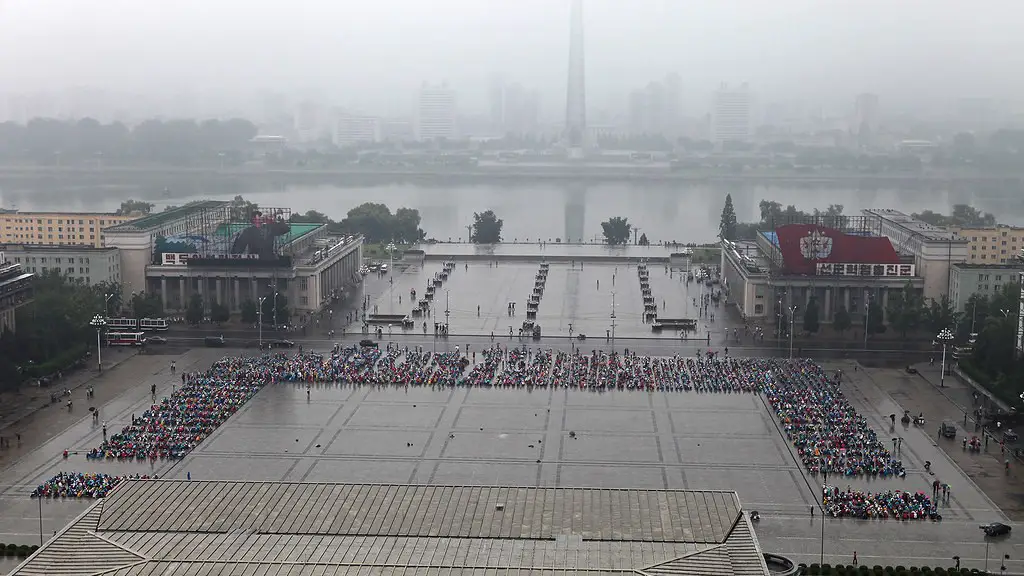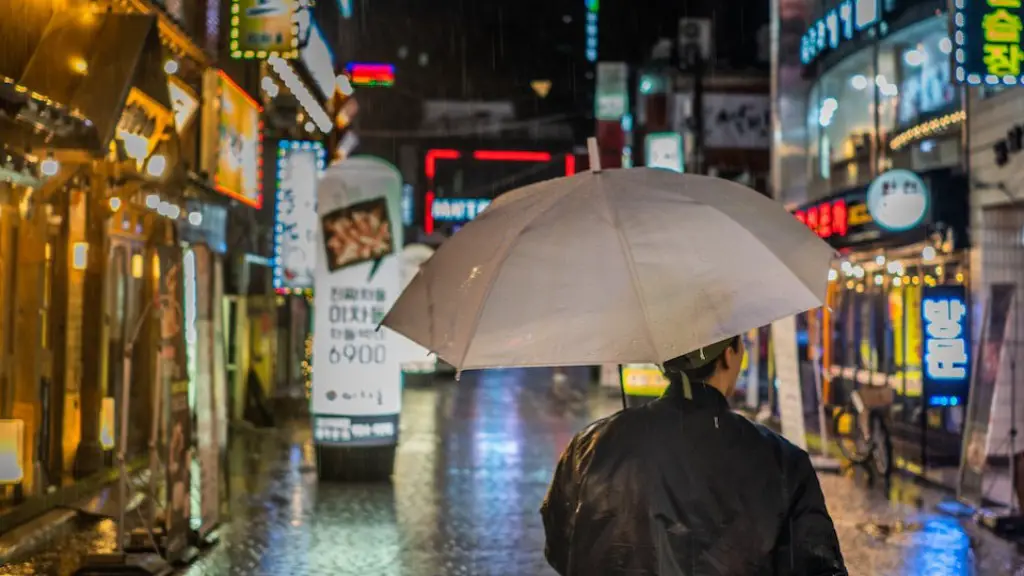The international community has been an outspoken critic of North Korea’s oppressive and inhumane regimes; however, despite the outcry and the clear evidence of human rights violations, the United Nations has not yet intervened in the affairs of the country. This begs the questions: why doesn’t the UN intervene in North Korea?
North Korea is a self-isolating country, closed off from world powers and information. The UN lacks insight into the inhumane realities of North Korea, preventing any positive change to improve the lives of its people. The UN also lacks the power to effectively take action against the country’s oppressive regimes. A report released by the UN commission in 2014 stated that international law was powerless to counter the human rights violations in North Korea.
The UN is also wary of the potential implications of intervention. It is well documented that the North Korean government does not respond well to external interference. North Korea has a history of defying diplomatic efforts and punishing those who speak out against the government. The UN is also aware that initiating any external interventions could incite conflict with the North Korean government, causing more harm than good.
Aside from the issues of diplomatic power and potential for conflict, there is also a lack of concrete evidence of the human rights issues in North Korea. The UN relies heavily on information from human rights experts, international news sources and NGO’s to learn more about the human rights issues within countries. Due to the vast censorship of information in North Korea, the UN often struggle to acquire reliable and valid information on the ground. This makes it harder for the UN to take tangible action on the matter.
Beyond this, there are some elements of cultural relativism that the UN are wary of. Countries such as the United States have attempted to impose their own judgement and values on North Korea, seeing the country as fundamentally wrong in their actions and failing to take into account the social and political context in which the North Korean regime operates. The UN has to remain impartial, taking into account these cultural differences, and assessing their impact objectively.
Regional Opposition
China and Russia have been two of North Korea’s most staunch allies, and could actively oppose any external interventions initiated by the UN. China is one of North Korea’s closest allies and currently provides aid in the form of food and energy. China is aware of the human rights violations in North Korea, and yet has consistently shied away from leading any UN interventions. China’s presence in the region also gives North Korea a certain level of immunity from UN actions, as China has the power to veto any resolutions that the UN proposes against the North Korean government.
Russia has also been a vocal defender of North Korea, historically taking a stance that the country should be allowed to develop the way it sees fit, and maintaining a diplomatic lead on the issue. Russian ambassador to the UN, Vitaly Churkin, has stated that any UN sanctions against North Korea would be counter-productive and only serve to fuel instability in the region. These stances taken by both Chinese and Russian political leaders clearly demonstrate their opposition to UN intervention in North Korea.
Impact Of Sanctions
Although the UN has not yet intervened in North Korea, the body did pass three separate sanctions against the country in 2006, 2009 and 2013 in a bid to limit the export and import of nuclear material. These sanctions have had a huge impact on the North Korean economy, contributing to a significant decrease in the country’s GDP.
It has been reported that the sanctions have greatly impacted North Korea’s food and medical system, and 17 million people in the country are now facing starvation. These dire consequences of the sanctions have caused humanitarian organisations to criticise the UN, believing that the body could have done more to ease the economic situation in North Korea whilst still reacting to the country’s nuclear ambitions.
International Pressure Groups
The international community has been a key agent in the struggle to improve the human rights situation in North Korea. Pressure groups such as Amnesty International and Human Rights Watch provide essential data on human rights violations in the country and have acted as the UN’s eyes and ears on the ground. This pressure has caused the UN to strongly condemn the actions of the North Korean government in the past, with former UN Secretary General Kofi Annan calling for the ‘immediate and unconditional improvement of the human rights situation in North Korea’.
Whilst pressure from international pressure groups has led to UN condemnations and even sanctions in the past, the UN has yet to take tangible action to improve the lives of North Koreans. Pressure from these organisations is an important tool in advocating for human rights, but its effectiveness in producing tangible change is still uncertain.
North Korean Defectors
The international community has a limited understanding of the inhumane realities of North Korea. But one invaluable source of information has been the accounts of North Korean defectors. Defectors have provided essential information on the political, economic and social issues of the country, informing the UN of the ongoing human rights violations.
Despite this, the North Korean government continues to punish its citizens for leaving the country. Defectors must make very dangerous journeys to reach countries where their presence is accepted and where they will not be persecuted. As such, many North Koreans are often deterred from defecting, leaving the international community without much-needed insight into the country.
Way Forwad
If the UN is to effectively intervene in North Korea, it must acquire reliable information on the human rights issues in the country. This could be achieved through closer monitoring of the region, engaging with those inside the country and increasing cooperation with international pressure groups.
The UN must also take into account the regional opposition to its efforts. Any diplomatic efforts must be well informed, taking into account the possible consequences of making any changes. The UN must also remain impartial and judicious in assessing the situation and in formulating any potential interventions.
Furthermore, the UN must also be mindful of the cultural relativism of North Korea. The North Korean system of government and cultural norms are far different from those of the west and although these differ from western values, it does not mean that their perspectives or beliefs should be disregarded.
International Coalition
The UN receives widespread criticism for its lack of tangible action on the North Korean situation. However, recent years have seen the formation of an international coalition involving the US, EU, China and Russia, who have all pledged to pressure the North Korean government into making positive changes. This coalition is an essential step in advocating for human rights in North Korea and represents a much needed commitment to a fairer future in the region.
The international community must also remember that any changes must be led by the North Korean people. Sanctions, pressures and external interventions cannot be effective if the North Korean people remain unaware of the positive changes that could be achieved. Increasing the access to information and creating safe spaces for North Koreans to learn and discuss could be essential tools in aiding the country in its transition to a fairer and safer future.
Sanctions And Aid
The UN has called for targeted sanctions to be imposed against North Korea for its human rights violations and its provocations against international law. But as the sanctions imposed in the past have had a significant impact on the North Korean economy, it is argued that any additional sanctions must be directed against the government alone, avoiding the lives of the general public.
The imposition of aid is also a major area of debate. Whilst aid is an essential tool for providing support to people in need, many believe that any aid given to North Korea must come with stringent conditions to ensure it is used in the best way possible. Strict monitoring should be put in place to ensure that any aid given to North Korea is not misused and goes to the people who need it the most.
People-Driven Change
North Korea is a fascinating and yet largely opaque country. Understanding the motivations behind its various actions is key in exerting pressure upon the government and spurring change. But the key to any lasting change must come from within North Korea itself.
North Koreans must be empowered to share their stories and stand up for their beliefs, safe in the knowledge of the international community’s support. Opening up the country and providing access to information, education and discussion are all essential tools in inspiring North Koreans to take action and drive the change that is needed in the region.
International Responsibility
Ultimately, North Koreans have borne the brunt of the situation in their country for far too long. It is the responsibility of the international community to take action and ensure that these issues are adequately and objectively addressed. The UN has the power to take decisive action, but it must be informed and judicious in its approach if it is to have any real impact.
Too often, the UN is criticised for its lack of tangible action, but if it stands any chance of improving the situation in North Korea, it must work in concert with the international community, remain impartial and judicious in its assessments, and give the North Korean people the support they need to take the initiative and drive positive change in the region.

